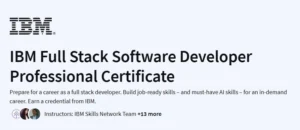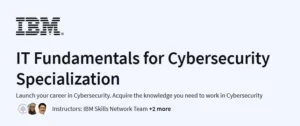What will you learn in The Fundamentals of Quantum Computing Course
- Understand the principles of quantum mechanics that power quantum computing.
- Explore core concepts like superposition, entanglement, and qubits.
- Learn about quantum gates, circuits, and quantum measurement.
- Work with Bloch spheres, unitary matrices, and the mathematics behind quantum algorithms.
- Discover quantum algorithms such as Grover’s and Shor’s, and their applications.
- Build a foundation to advance into quantum programming with tools like Qiskit.
Program Overview
Module 1: Introduction to Quantum Computing
⏳ 1.5 hours
Topics: What is quantum computing, classical vs. quantum, real-world use cases.
Hands-on: Conceptual visualizations of qubit behavior and quantum hardware.
Module 2: Qubits and Superposition
⏳ 2 hours
Topics: Qubits vs. bits, quantum states, Dirac notation, superposition.
Hands-on: Simulate simple qubit states and interpret amplitudes.
Module 3: Quantum Gates and Circuits
⏳ 2.5 hours
Topics: Pauli gates, Hadamard, CNOT, unitary operations, quantum logic.
Hands-on: Build simple quantum circuits and evaluate output states.
Module 4: Quantum Measurement
⏳ 1.5 hours
Topics: Collapse of the wavefunction, probability amplitudes, measuring qubits.
Hands-on: Measure quantum states and observe changes over time.
Module 5: Entanglement and Multi-Qubit Systems
⏳ 2 hours
Topics: Bell states, EPR paradox, quantum teleportation basics.
Hands-on: Construct and test entangled qubit systems.
Module 6: Quantum Algorithms Overview
⏳ 2.5 hours
Topics: Grover’s algorithm, Shor’s algorithm, quantum search and factoring.
Hands-on: Simulate small-scale algorithms with step-by-step walkthroughs.
Module 7: Real-World Quantum Applications
⏳ 2 hours
Topics: Cryptography, optimization, quantum machine learning.
Hands-on: Explore simplified applications and implementation strategies.
Get certificate
Job Outlook
Quantum computing is an emerging field with growing opportunities in research, defense, cryptography, and AI.
Skills in quantum mechanics and algorithm design are in high demand for roles like quantum developer, research scientist, and algorithm engineer.
Companies like IBM, Google, and Microsoft are investing heavily in quantum R&D.
Early adopters of quantum skills can expect long-term benefits in tech, academia, and finance.
Specification: The Fundamentals of Quantum Computing Course
|
FAQs
- Basic linear algebra and probability are helpful.
- Advanced physics or calculus is not strictly required.
- The course uses visual explanations to simplify concepts.
- Mathematical formulas are introduced gradually.
- Supplemental resources can deepen understanding if desired.
- The course is mostly conceptual with visual simulations.
- Some modules introduce simplified quantum circuits.
- It does not cover in-depth coding with Qiskit or Cirq.
- Learners will understand algorithms like Grover’s and Shor’s at a high level.
- Coding can be pursued afterward with beginner-friendly quantum SDKs.
- Quantum computing is still emerging but rapidly growing.
- Skills are valuable in cryptography, optimization, and AI.
- Research institutions and big tech firms are investing heavily.
- Early learners have an advantage as the field matures.
- Knowledge enhances long-term career positioning in tech and research.
- Yes, it explains superposition and entanglement.
- Introduces why quantum algorithms can solve problems faster.
- Covers classical vs. quantum computing differences.
- Uses examples like factoring and database search.
- Helps you understand theoretical speedups, not hands-on benchmarking.
- Move to practical programming with Qiskit, Cirq, or Braket.
- Explore advanced topics like quantum error correction.
- Take specialized courses in quantum algorithms.
- Join open-source quantum communities for hands-on practice.
- Follow industry updates from IBM, Google, and Microsoft.





